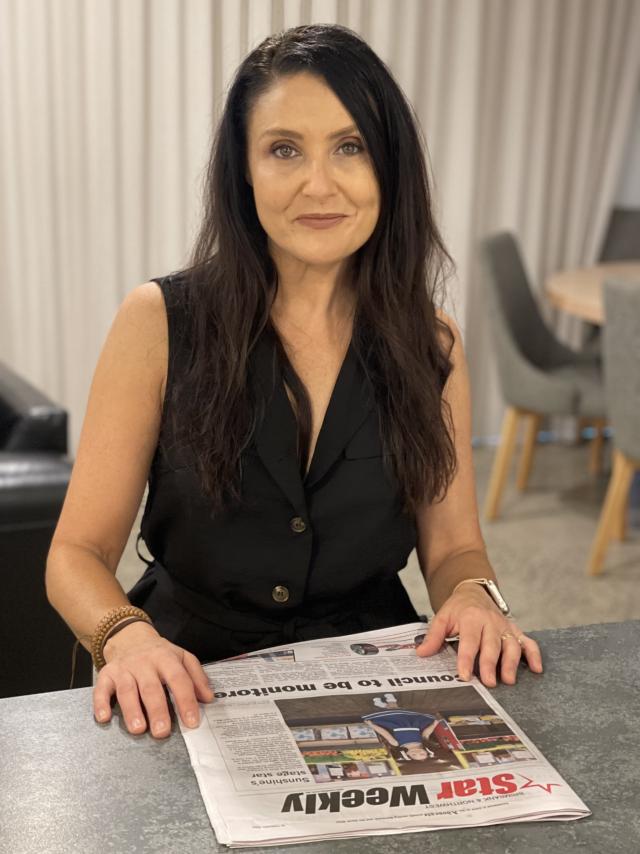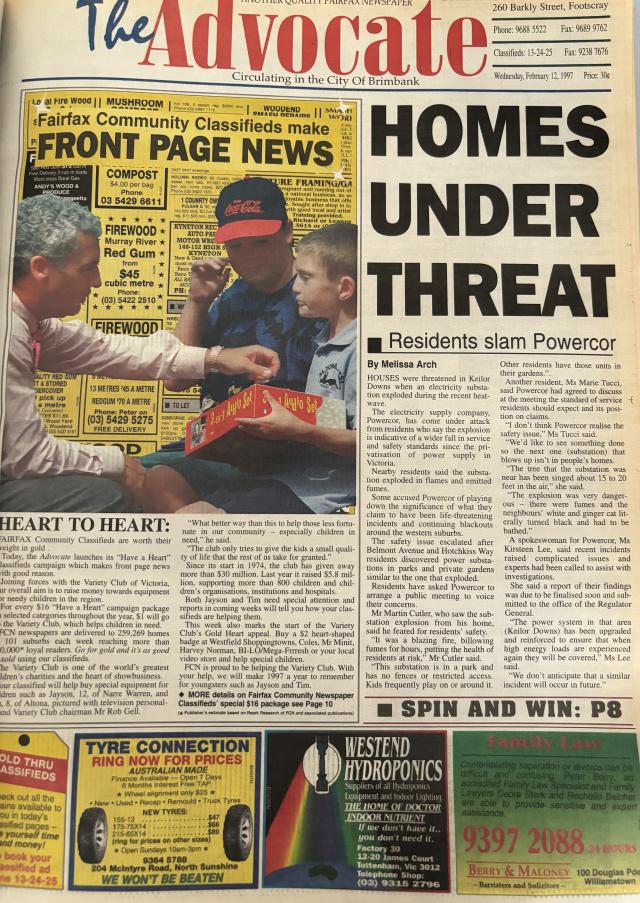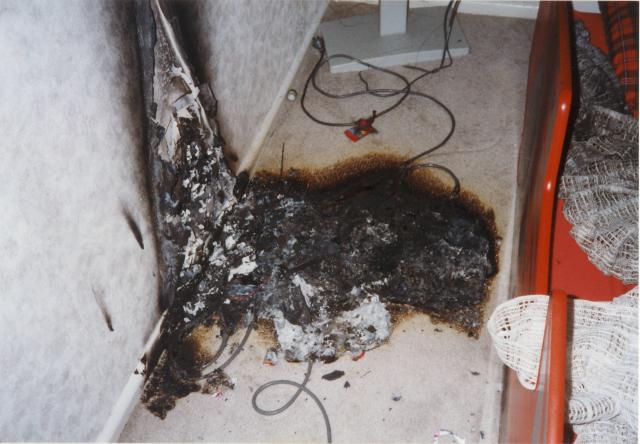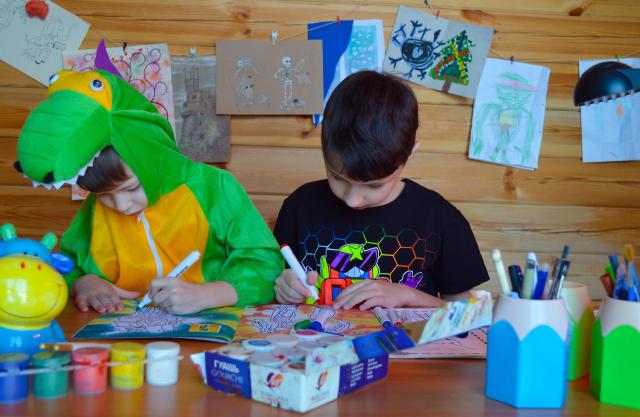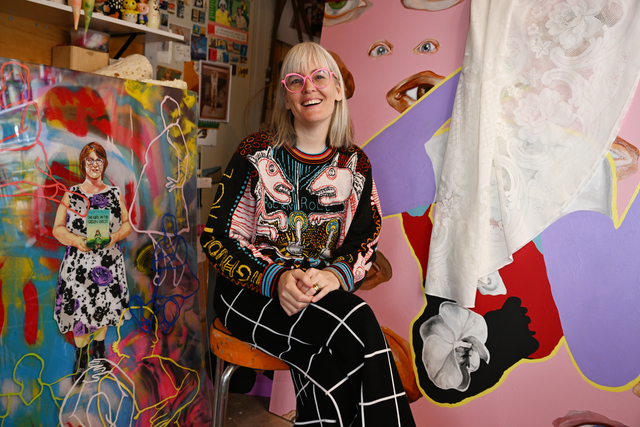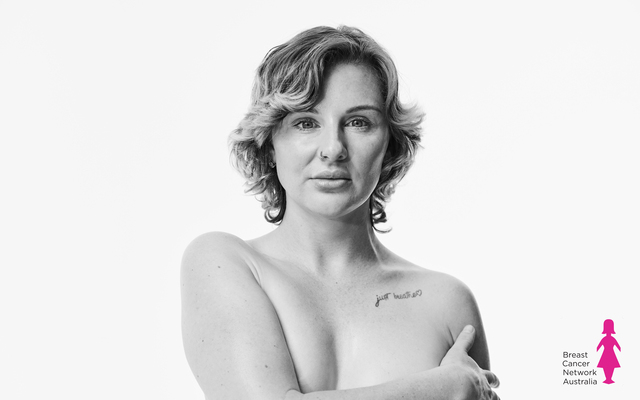As The Advocate marks 100 years of community news, it’s a moment not just to reminisce about headlines past but to also celebrate the journey’s of those who penned them.
Among the many who share a part in the century-long history is Melissa Arch, who first arrived at The Advocate as an eager cadet.
“I was one of those rare – or still rare, young people who just always knew what they wanted to do,“ she said. “Ever since I can remember, I knew I wanted to be a journalist.”
Like most, Arch made her way into journalism through a mix of both determination and persistence, from volunteering at community radio to pursuing freelance opportunities before eventually earning a spot at The Advocate in 1996.
“Once I finished university I applied for cadetships all over Australia – everywhere. Back in those days it was all written applications, and posting applications off… and then of course, calling, and hounding and hounding,” she said.
“Coincidentally, one of the few call backs I had for an interview was around the corner at The Advocate. At the time I was living in Moonee Ponds and I was prepared and willing to go anywhere, from the Northern Territory, to Outback Queensland. I applied everywhere just to get my foot in the door, I was so passionate about becoming a journalist.
“I eventually got a job at The Advocate and I was so excited. It was incredibly exciting, the fact that I didn’t have to pick my life up and start a new life somewhere else.”
Reflecting on her time at the paper, Arch recounts the pivotal role the paper played in covering significant local events. From the heroin epidemic gripping Melbourne’s western suburbs to breaking stories on Brimbank council scandals, The Advocate was at the forefront of community reporting, bearing witness to the ebbs and flows of community life.
“Reporting in Melbourne at that time was really important, particularly in the western suburbs it was the time when Melbourne was in the throes of a heroin epidemic,“ she said. “There were families who were heavily impacted by it, families that you knew by virtue of being in the western suburbs. Being able to report on that and also tell families’ stories about how that was impacting them, was a rewarding thing to do as well. Reporting on the issues that mattered to your community.“
Arch said she vividly remembers the challenges of working as a young reporter, including confronting moments like unknowingly approaching a murderer for an interview.
“There was a murder that we reported on,“ she said. “This young man was stabbed to death overnight and so the next morning the photographer and I went around to his house because the police were looking for clues, and appealing for information about the crime. We went to speak to the family to ask whether they would be interviewed, so that we could try to help them find the killer of their son. They couldn’t speak English and so they didn’t speak to us. A couple of days later the police notified us that the step dad, who we asked for an interview, was actually charged and has since been convicted of killing that boy. So we were asking the killer if he wanted to be interviewed. There were a lot of confronting things like that.
But it wasn’t just the stories she pursued that defined Arch’s career, it was the people she met along the way.
“My advice to young journalists is not to bypass community journalism,“ she said.
“At The Advocate there was no differentiating. There was no community newspaper versus major newspaper. Journalists and editors who worked there always considered themselves in competition with metro media. There was never a second tier, The Advocate broke stories before major metro media quite often, and people who wanted their stories heard would go to The Advocate before they went to major metro media on a lot of occasions. It was incredibly reputable and a fundamental part of the community.
“Community newspapers are where the cut and thrust of things happen, where you learn a lot. Take the opportunity if you get it, be brave and honest, and form really good relationships with people, they will come back to serve you later in whatever you chose to do. I’ve got contacts that I had when I was a cadet, and now in my career I still turn to them.”
Despite now working in politics, it seems the torch of storytelling has passed seamlessly from one generation to the next, with Arch’s son, Harper Sercombe, now taking on his own cadetship within the same local paper.
“It’s very surreal, and very special,” she said.
“For him to not only want to be a journalist and be interested in journalism, but then to land in the same local media territory that I cut my teeth in makes me incredibly proud.”
Looking ahead to the future of community news, Arch said she sees a potential resurgence in local, trusted sources of information, with community news standing at the threshold of a new era.
“People are definitely turning their back on mainstream news,“ she said.
“I think that could pave the way for the return of a really local, trusted source of news. And hopefully the come-back of the community newspaper.”

